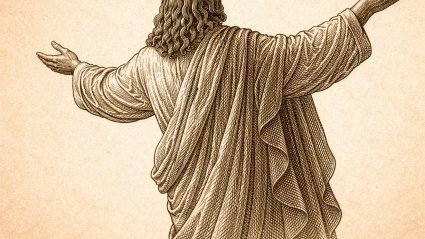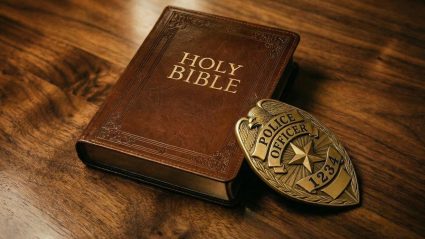Jesus Christ is God manifested in the flesh. Anything taught by others is false. He deserves our complete love and obedience.
July 2, 2025
The Road to Damascus conversion of Saul of Tarsus was wonderfully dramatic. But that is just the tip of the iceberg of his salvation. In the book of Romans, Paul let us see under the surface of the water. Before his conversion, he was heavy laden under the weight of God’s Law. What he thought was leading him to Heaven was sending him to Hell:
I was alive once without the law, but when the commandment came, sin revived and I died. And the commandment, which was to bring life, I found to bring death. (Romans 7:9-10)
Paul felt the tug of his flesh—and with it the wrath of the Law:
…the law brings about wrath…
…for I would not have known covetousness unless the law had said, “You shall not covet.” (Romans 4:15; 7:7)
We also see the work of the Law hidden in the Parable of the Prodigal Son. Jesus leads up to the story by speaking of a lost sheep, then of a woman who lost a coin:
“Or what woman, having ten silver coins, if she loses one coin, does not light a lamp, sweep the house, and search carefully until she finds it?” (Luke 15:8)
This woman did three things to find that coin.
- She lit a lamp. This was so that she could see clearly. It seems that most of the contemporary body of Christ are still in the dark when it comes to our agenda as the Church. We are to imitate Jesus and seek and save that which is lost.
- She swept the house. If we want God to use us, we must sweep the dirt of sin from our lives and present our bodies as living sacrifices, “holy and acceptable to God, which is our reasonable service” (Romans 12:1).
- She searched diligently. We should diligently strive to seek and save the lost daily. Our prayers should be soaked with a burden for a Hellbound world. If we forget Hell, it won’t be long until we forget the lost. We are to be steadfast, unmovable—always abounding in the work of the Lord, for our labor is not in vain in the Lord.
Then Jesus spoke of that which is more valuable than a lost sheep or coin. He told the story of a young man who said to his father, “Give me my inheritance.” And then he went to a far country and spent his money on prostitutes and wild parties. But when his money ran out, he found himself in a pigsty, desiring pig food. It was the revelation that his appetites were for filthy pig food that caused him to decide to go back to his father and say, “I’ve sinned against Heaven and in your sight. Make me your hired servant” (see Luke 15:16-19).
“The apostle Paul said that he has not known sin except through the Law (Romans 7:7).”
It is when we have the revelation that our appetites are for the filth of sin that we realize that we’ve sinned against God. And it’s God’s Law that awakens us to that fact. The apostle Paul said that he has not known sin except through the Law (Romans 7:7).
Tragically, the modern Church has failed to use the Law to show sinners that their desires are unclean. And so, instead of going back to the Father and saying, “Make me a hired servant,” unrepentant sinners go to God and say, “I’ve run out of money. Give me some more.” In other words, “You be my servant.” And there you have the reason for what is commonly called the prosperity doctrine, which has millions believing that God is no more than a servant who is to cater to our greed. Such “converts” have no concern to do the will of the Father—to seek the lost. The Prince of Preachers, Charles Spurgeon, warned:
I do not believe that any man can preach the gospel who does not preach the Law. Lower the Law and you dim the light by which man perceives his guilt; this is a very serious loss to the sinner rather than a gain; for it lessens the likelihood of his conviction and conversion. I say you have deprived the gospel of its ablest auxiliary [its most powerful weapon] when you have set aside the Law. You have taken away from it the schoolmaster that is to bring men to Christ. They will never accept grace till they tremble before a just and holy Law. Therefore, the Law serves a most necessary purpose, and it must not be removed from its place.



